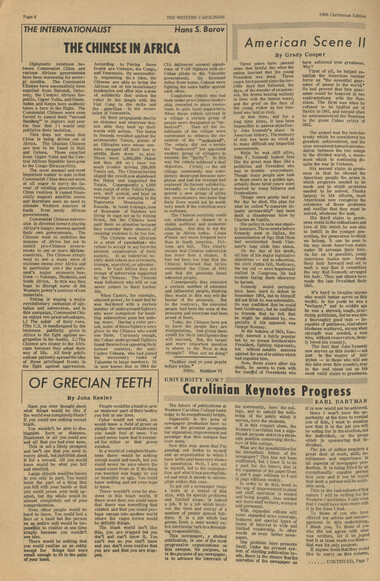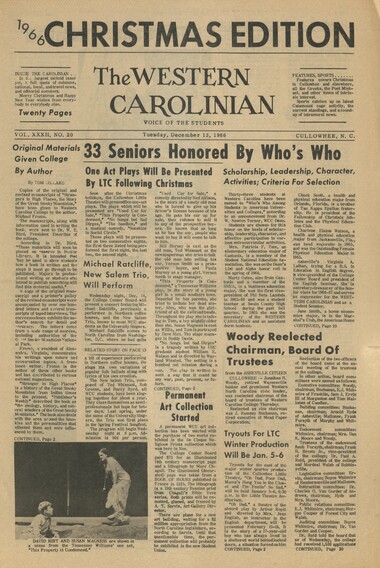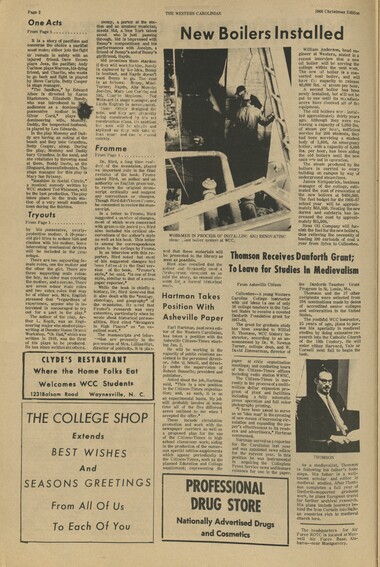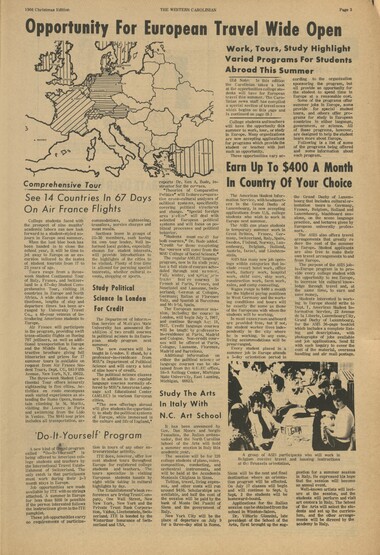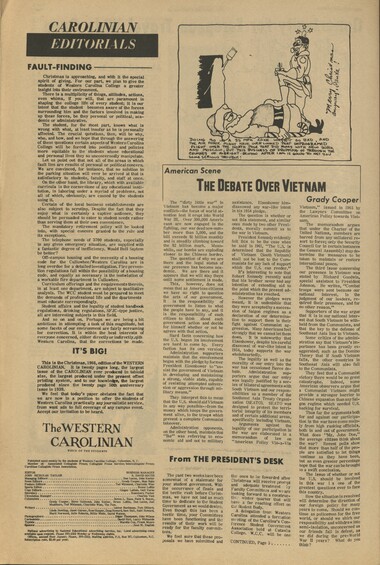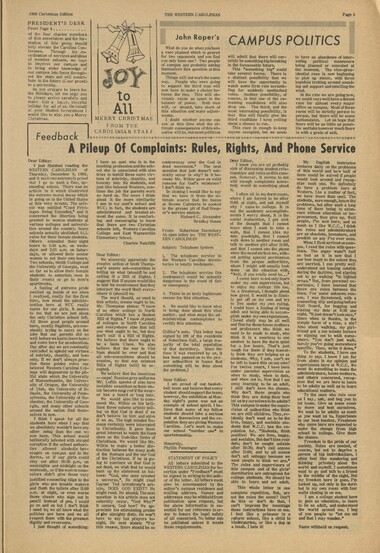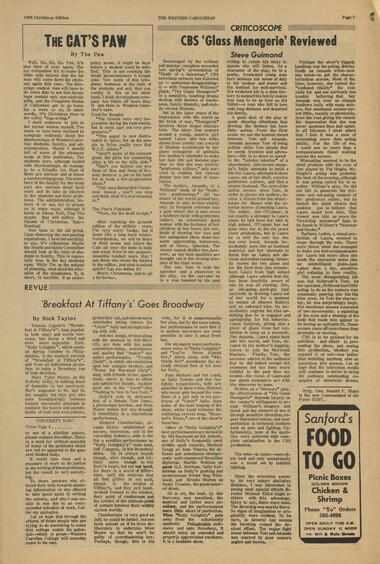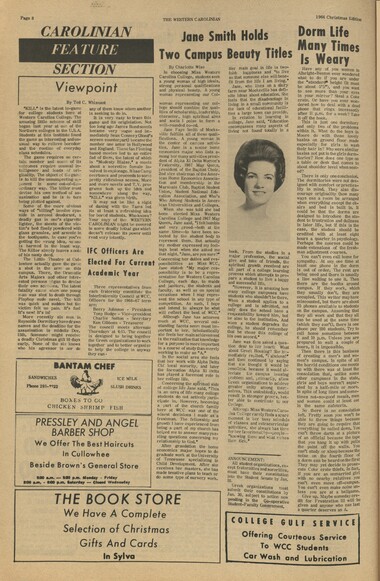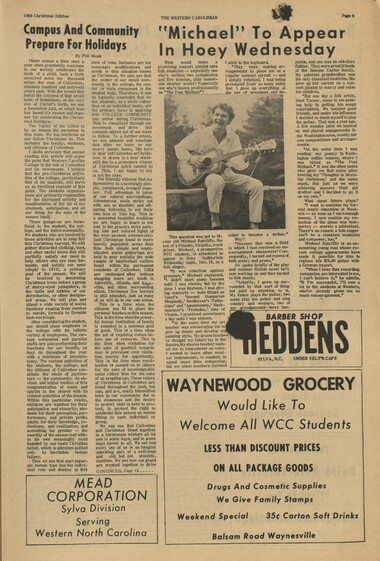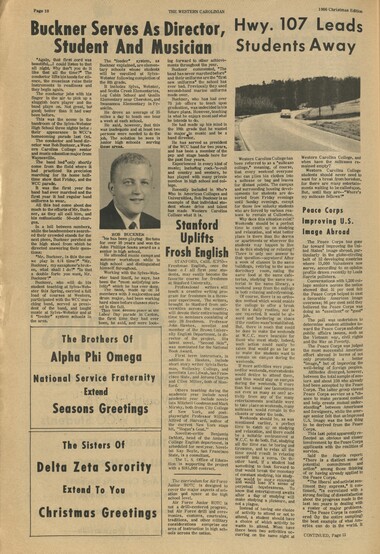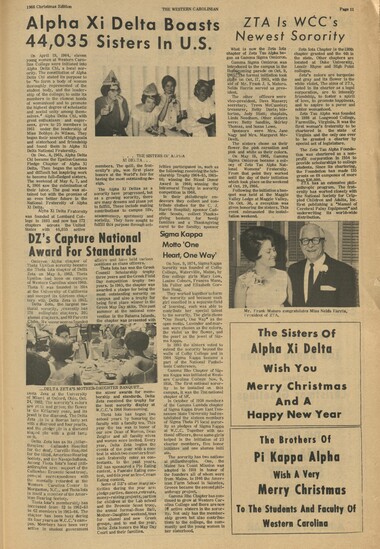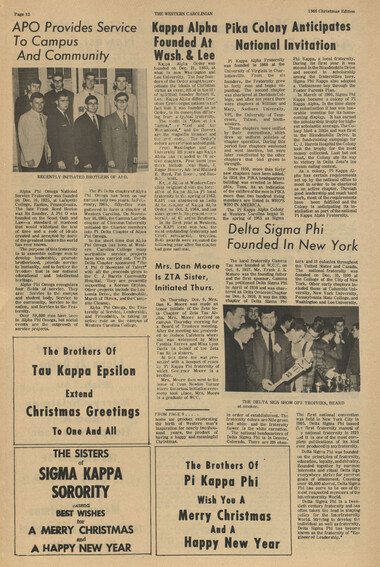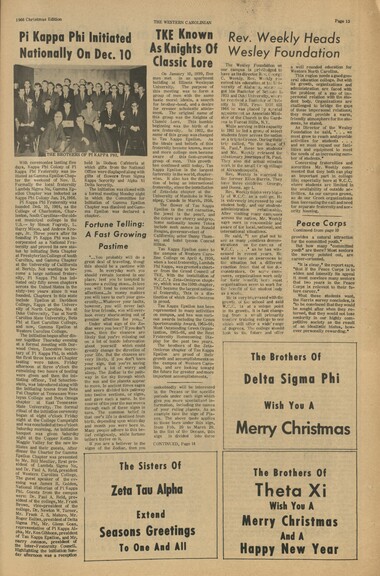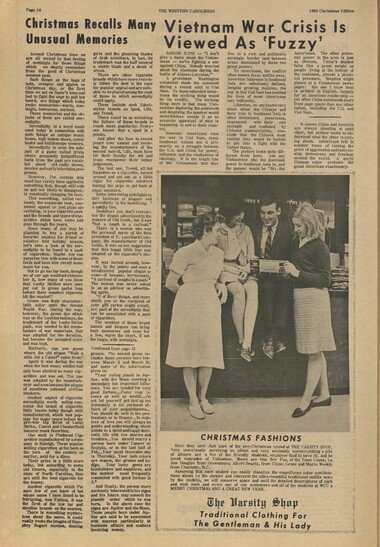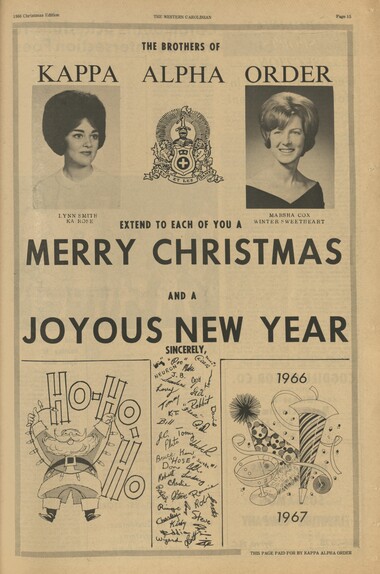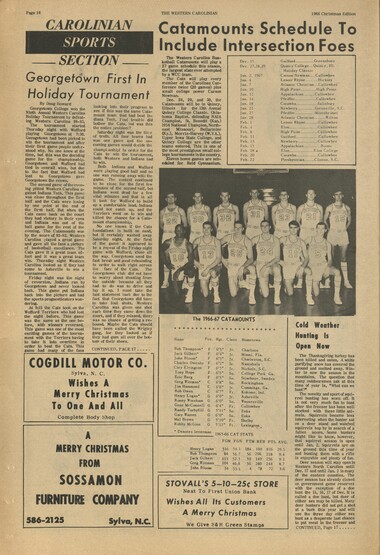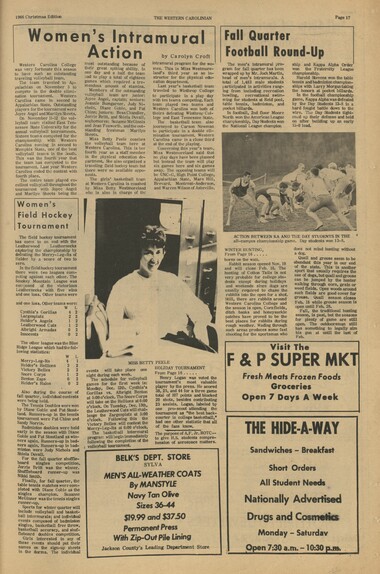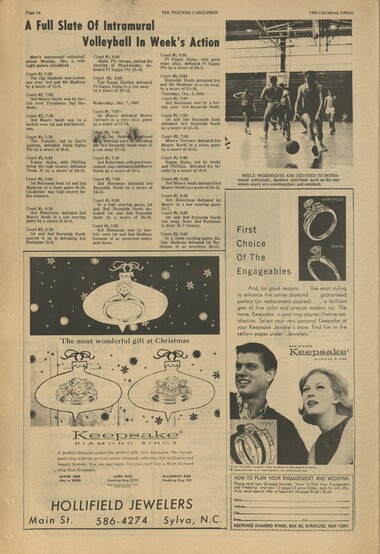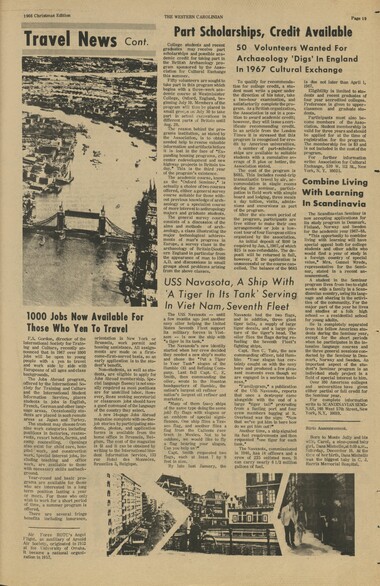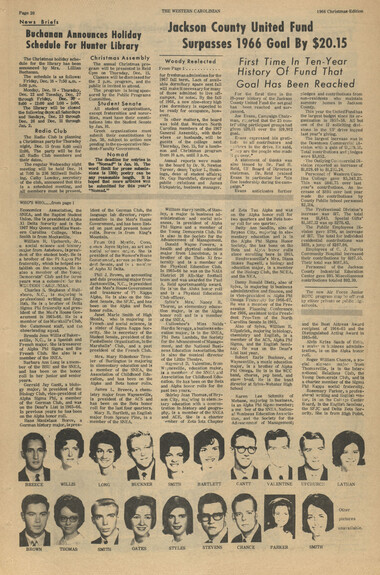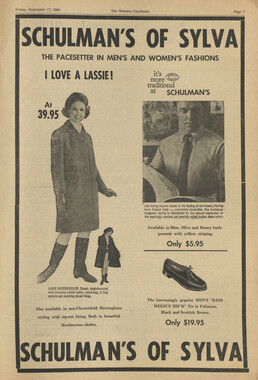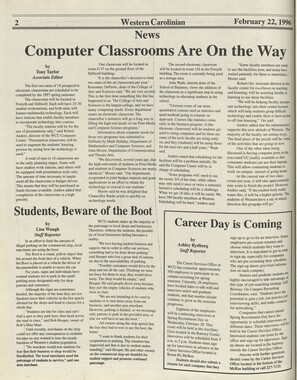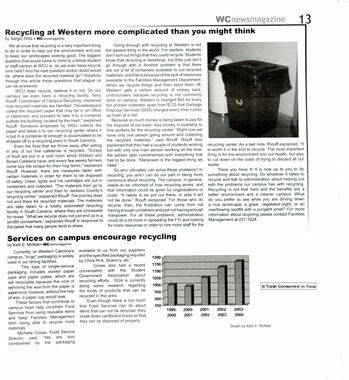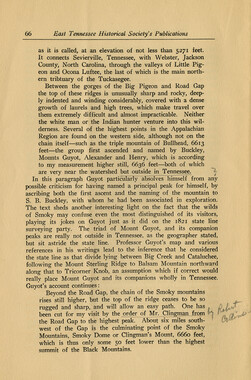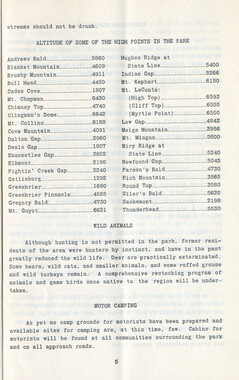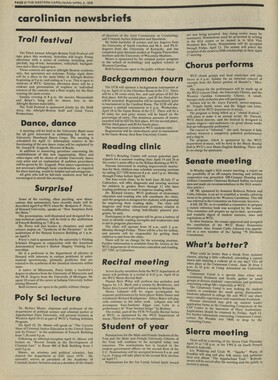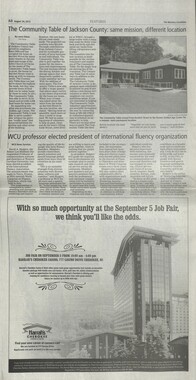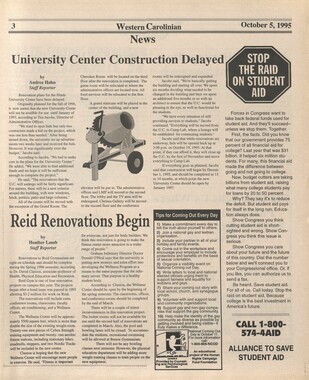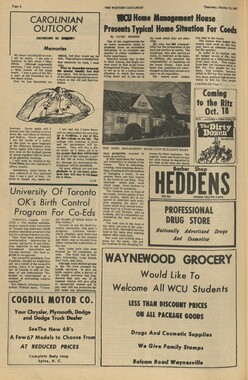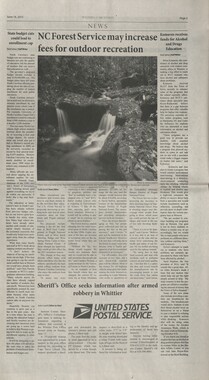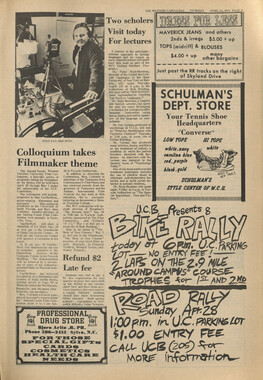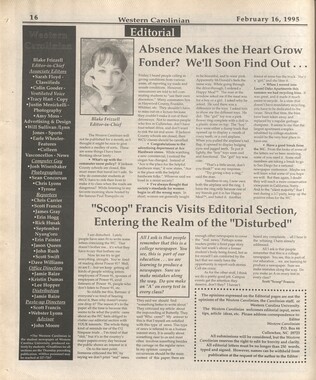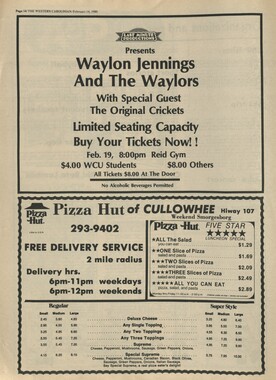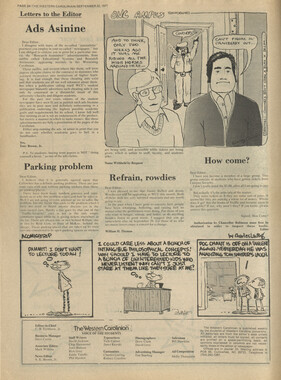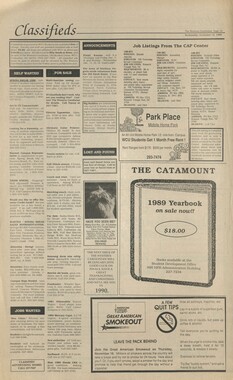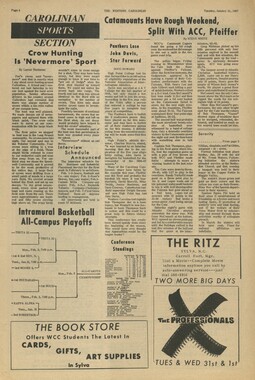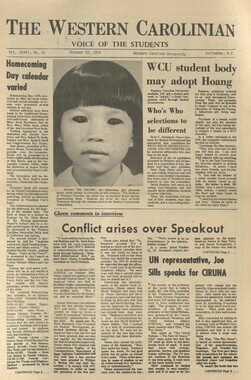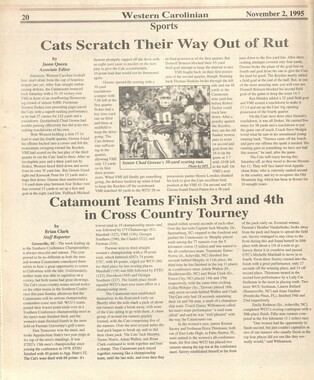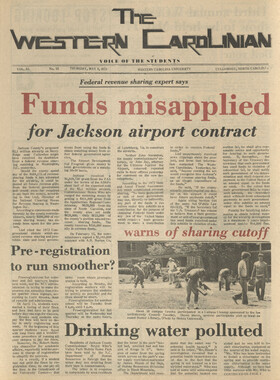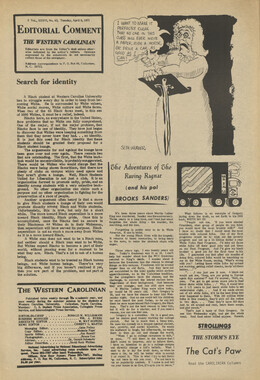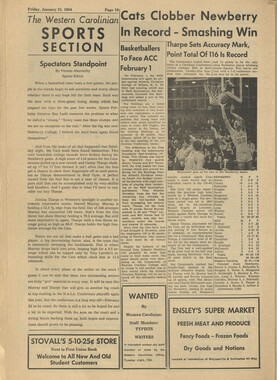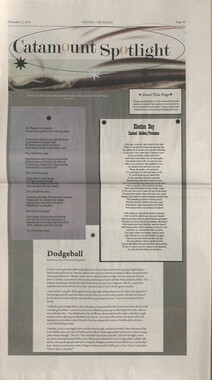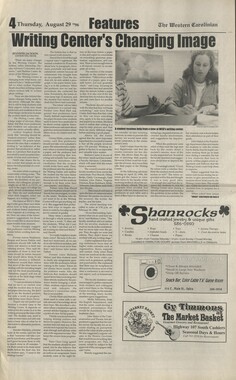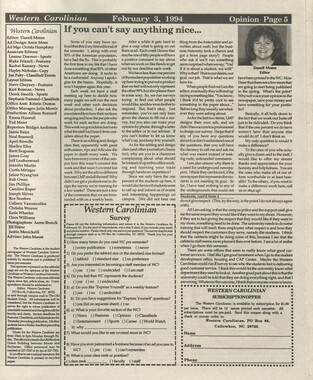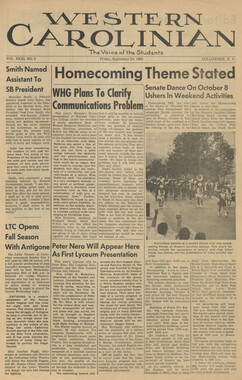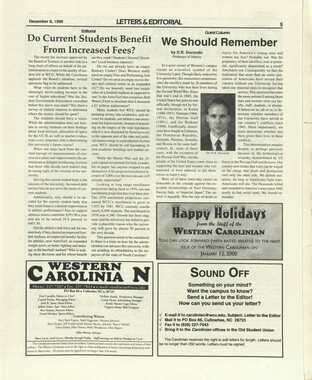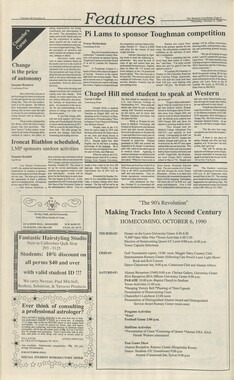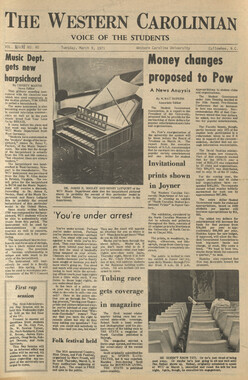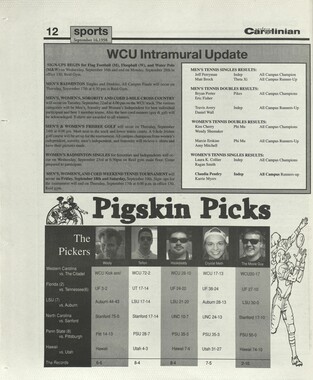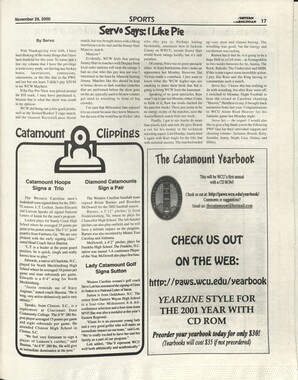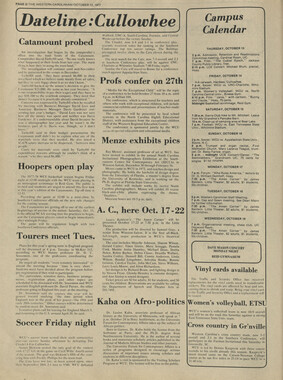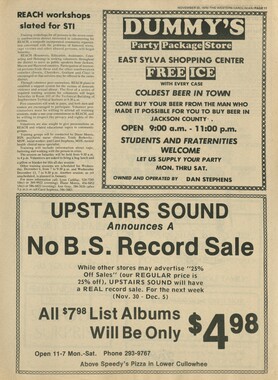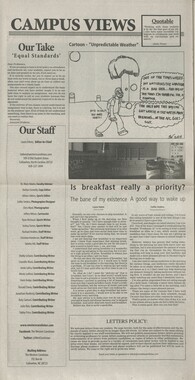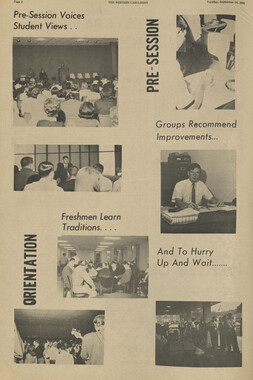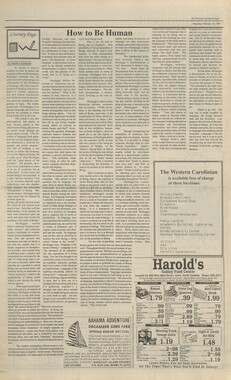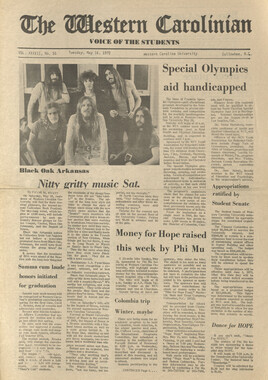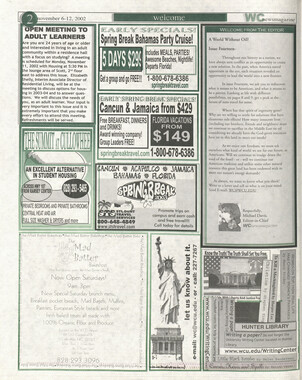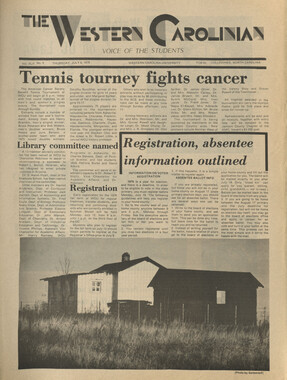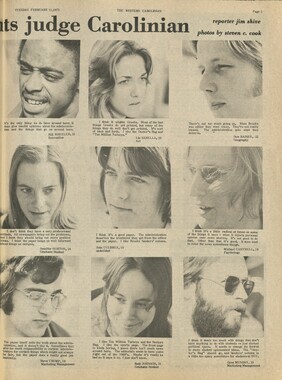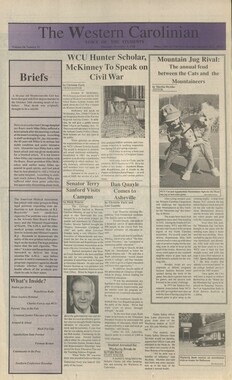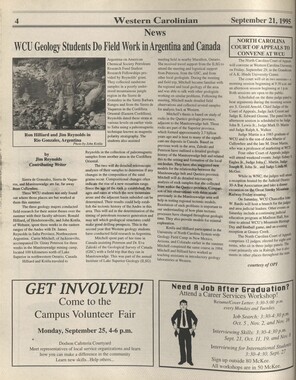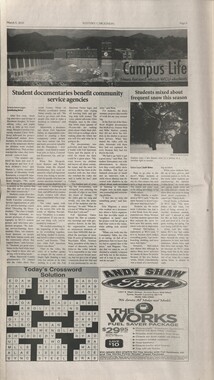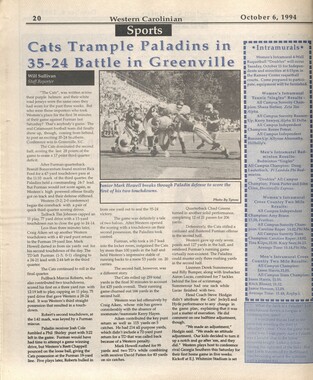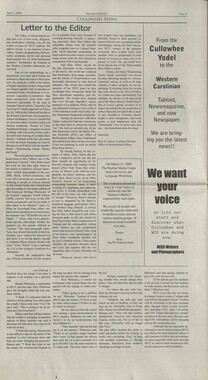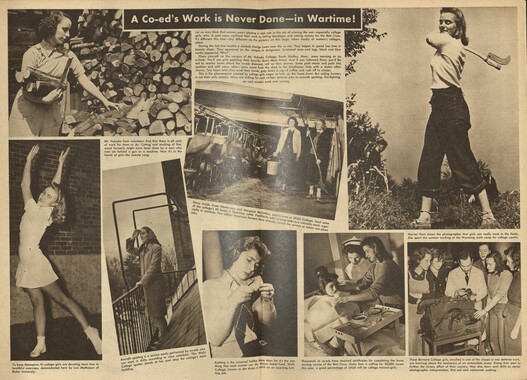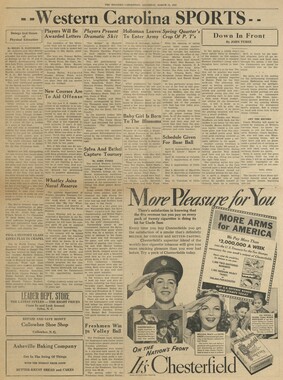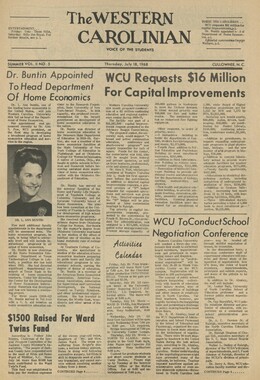Western Carolina University (21)
View all
- Canton Champion Fibre Company (2308)
- Cherokee Traditions (291)
- Civil War in Southern Appalachia (165)
- Craft Revival (1942)
- George Masa Collection (137)
- Great Smoky Mountains - A Park for America (3080)
- Highlights from Western Carolina University (422)
- Horace Kephart (973)
- Journeys Through Jackson (159)
- LGBTQIA+ Archive of Jackson County (89)
- Oral Histories of Western North Carolina (318)
- Picturing Appalachia (6617)
- Stories of Mountain Folk (413)
- Travel Western North Carolina (153)
- Western Carolina University Fine Art Museum Vitreograph Collection (129)
- Western Carolina University Herbarium (92)
- Western Carolina University: Making Memories (738)
- Western Carolina University Publications (2491)
- Western Carolina University Restricted Electronic Theses and Dissertations (146)
- Western North Carolina Regional Maps (71)
- World War II in Southern Appalachia (131)
University of North Carolina Asheville (6)
View all
- Allanstand Cottage Industries (62)
- Appalachian National Park Association (53)
- Bennett, Kelly, 1890-1974 (1463)
- Berry, Walter (76)
- Brasstown Carvers (40)
- Carver, George Washington, 1864?-1943 (26)
- Cathey, Joseph, 1803-1874 (1)
- Champion Fibre Company (233)
- Champion Paper and Fibre Company (297)
- Cherokee Indian Fair Association (16)
- Cherokee Language Program (22)
- Crowe, Amanda (40)
- Edmonston, Thomas Benton, 1842-1907 (7)
- Ensley, A. L. (Abraham Lincoln), 1865-1948 (275)
- Fromer, Irving Rhodes, 1913-1994 (70)
- George Butz (BFS 1907) (46)
- Goodrich, Frances Louisa (120)
- Grant, George Alexander, 1891-1964 (96)
- Heard, Marian Gladys (60)
- Kephart, Calvin, 1883-1969 (15)
- Kephart, Horace, 1862-1931 (313)
- Kephart, Laura, 1862-1954 (67)
- Laney, Gideon Thomas, 1889-1976 (439)
- Masa, George, 1881-1933 (61)
- McElhinney, William Julian, 1896-1953 (44)
- Niggli, Josephina, 1910-1983 (10)
- North Carolina Park Commission (105)
- Osborne, Kezia Stradley (9)
- Owens, Samuel Robert, 1918-1995 (11)
- Penland Weavers and Potters (36)
- Roberts, Vivienne (15)
- Roth, Albert, 1890-1974 (142)
- Schenck, Carl Alwin, 1868-1955 (1)
- Sherrill's Photography Studio (2565)
- Southern Highland Handicraft Guild (127)
- Southern Highlanders, Inc. (71)
- Stalcup, Jesse Bryson (46)
- Stearns, I. K. (213)
- Thompson, James Edward, 1880-1976 (226)
- United States. Indian Arts and Crafts Board (130)
- USFS (683)
- Vance, Zebulon Baird, 1830-1894 (1)
- Weaver, Zebulon, 1872-1948 (58)
- Western Carolina College (230)
- Western Carolina Teachers College (282)
- Western Carolina University (2008)
- Western Carolina University. Mountain Heritage Center (18)
- Whitman, Walt, 1819-1892 (10)
- Wilburn, Hiram Coleman, 1880-1967 (73)
- Williams, Isadora (3)
- Cain, Doreyl Ammons (0)
- Crittenden, Lorraine (0)
- Rhodes, Judy (0)
- Smith, Edward Clark (0)
- Appalachian Region, Southern (3032)
- Asheville (N.C.) (1945)
- Avery County (N.C.) (26)
- Blount County (Tenn.) (195)
- Buncombe County (N.C.) (1680)
- Cherokee County (N.C.) (283)
- Clay County (N.C.) (556)
- Graham County (N.C.) (238)
- Great Smoky Mountains National Park (N.C. and Tenn.) (535)
- Haywood County (N.C.) (3573)
- Henderson County (N.C.) (70)
- Jackson County (N.C.) (4925)
- Knox County (Tenn.) (35)
- Knoxville (Tenn.) (13)
- Lake Santeetlah (N.C.) (10)
- Macon County (N.C.) (421)
- Madison County (N.C.) (216)
- McDowell County (N.C.) (39)
- Mitchell County (N.C.) (135)
- Polk County (N.C.) (35)
- Qualla Boundary (982)
- Rutherford County (N.C.) (78)
- Swain County (N.C.) (2185)
- Transylvania County (N.C.) (270)
- Watauga County (N.C.) (12)
- Waynesville (N.C.) (86)
- Yancey County (N.C.) (72)
- Aerial Photographs (3)
- Aerial Views (60)
- Albums (books) (4)
- Articles (1)
- Artifacts (object Genre) (228)
- Bibliographies (1)
- Biography (general Genre) (2)
- Cards (information Artifacts) (38)
- Clippings (information Artifacts) (192)
- Copybooks (instructional Materials) (3)
- Crafts (art Genres) (622)
- Depictions (visual Works) (21)
- Design Drawings (1)
- Digital Moving Image Formats (2)
- Drawings (visual Works) (185)
- Envelopes (101)
- Exhibitions (events) (1)
- Facsimiles (reproductions) (1)
- Fiction (general Genre) (4)
- Financial Records (12)
- Fliers (printed Matter) (67)
- Glass Plate Negatives (381)
- Guidebooks (2)
- Internegatives (10)
- Interviews (823)
- Land Surveys (102)
- Letters (correspondence) (1045)
- Manuscripts (documents) (618)
- Maps (documents) (177)
- Memorandums (25)
- Minutes (administrative Records) (59)
- Negatives (photographs) (6090)
- Newsletters (1290)
- Newspapers (2)
- Notebooks (8)
- Occupation Currency (1)
- Paintings (visual Works) (1)
- Pen And Ink Drawings (1)
- Periodicals (194)
- Personal Narratives (10)
- Photographs (12977)
- Plans (maps) (1)
- Poetry (6)
- Portraits (4568)
- Postcards (329)
- Programs (documents) (181)
- Publications (documents) (2444)
- Questionnaires (65)
- Relief Prints (26)
- Sayings (literary Genre) (1)
- Scrapbooks (282)
- Sheet Music (2)
- Slides (photographs) (402)
- Songs (musical Compositions) (2)
- Sound Recordings (802)
- Specimens (92)
- Speeches (documents) (18)
- Tintypes (photographs) (8)
- Transcripts (329)
- Text Messages (0)
- A.L. Ensley Collection (275)
- Appalachian Industrial School Records (7)
- Appalachian National Park Association Records (336)
- Axley-Meroney Collection (2)
- Bayard Wootten Photograph Collection (20)
- Bethel Rural Community Organization Collection (7)
- Blumer Collection (5)
- C.W. Slagle Collection (20)
- Canton Area Historical Museum (2110)
- Carlos C. Campbell Collection (462)
- Cataloochee History Project (64)
- Cherokee Studies Collection (4)
- Daisy Dame Photograph Album (5)
- Daniel Boone VI Collection (1)
- Doris Ulmann Photograph Collection (112)
- Elizabeth H. Lasley Collection (1)
- Elizabeth Woolworth Szold Fleharty Collection (4)
- Frank Fry Collection (95)
- George Masa Collection (173)
- Gideon Laney Collection (452)
- Hazel Scarborough Collection (2)
- Hiram C. Wilburn Papers (28)
- Historic Photographs Collection (236)
- Horace Kephart Collection (861)
- Humbard Collection (33)
- Hunter and Weaver Families Collection (1)
- I. D. Blumenthal Collection (4)
- Isadora Williams Collection (4)
- Jesse Bryson Stalcup Collection (47)
- Jim Thompson Collection (224)
- John B. Battle Collection (7)
- John C. Campbell Folk School Records (80)
- John Parris Collection (6)
- Judaculla Rock project (2)
- Kelly Bennett Collection (1482)
- Love Family Papers (11)
- Major Wiley Parris Civil War Letters (3)
- Map Collection (12)
- McFee-Misemer Civil War Letters (34)
- Mountain Heritage Center Collection (4)
- Norburn - Robertson - Thomson Families Collection (44)
- Pauline Hood Collection (7)
- Pre-Guild Collection (2)
- Qualla Arts and Crafts Mutual Collection (12)
- R.A. Romanes Collection (681)
- Rosser H. Taylor Collection (1)
- Samuel Robert Owens Collection (94)
- Sara Madison Collection (144)
- Sherrill Studio Photo Collection (2558)
- Smoky Mountains Hiking Club Collection (616)
- Stories of Mountain Folk - Radio Programs (374)
- The Reporter, Western Carolina University (510)
- Venoy and Elizabeth Reed Collection (16)
- WCU Gender and Sexuality Oral History Project (36)
- WCU Mountain Heritage Center Oral Histories (25)
- WCU Oral History Collection - Mountain People, Mountain Lives (71)
- WCU Students Newspapers Collection (1923)
- Western North Carolina Tomorrow Black Oral History Project (69)
- William Williams Stringfield Collection (2)
- Zebulon Weaver Collection (109)
- African Americans (390)
- Appalachian Trail (35)
- Artisans (521)
- Cherokee art (84)
- Cherokee artists -- North Carolina (10)
- Cherokee language (21)
- Cherokee pottery (101)
- Cherokee women (208)
- Church buildings (190)
- Civilian Conservation Corps (U.S.) (111)
- College student newspapers and periodicals (2012)
- Dams (108)
- Dance (1023)
- Education (222)
- Floods (63)
- Folk music (1015)
- Forced removal, 1813-1903 (2)
- Forest conservation (220)
- Forests and forestry (1198)
- Gender nonconformity (4)
- Great Smoky Mountains National Park (N.C. and Tenn.) (181)
- Hunting (47)
- Landscape photography (25)
- Logging (122)
- Maps (83)
- Mines and mineral resources (9)
- North Carolina -- Maps (18)
- Paper industry (38)
- Postcards (255)
- Pottery (135)
- Railroad trains (72)
- Rural electrification -- North Carolina, Western (3)
- School integration -- Southern States (2)
- Segregation -- North Carolina, Western (5)
- Slavery (5)
- Sports (452)
- Storytelling (243)
- Waterfalls -- Great Smoky Mountains (N.C. and Tenn.) (66)
- Weaving -- Appalachian Region, Southern (280)
- Wood-carving -- Appalachian Region, Southern (328)
- World War, 1939-1945 (173)
Western Carolinian Volume 32 Number 20
Item
Item’s are ‘child’ level descriptions to ‘parent’ objects, (e.g. one page of a whole book).
-
-
Page 6 THE WESTERN CAROLINIAN 1966 Christmas Edition THE INTERNATIONALIST Hans S. Borov THE CHINESE IN AFRICA Diplomatic relations between Communist China and various African governments have been worsening for several months. The Communist "Chinese have successfully been expelled from Burundi, Dahomey, the Central African Republic, Upper Volta, and Ghana. Sudan and Kenya have suddenly taken a turn to the Right, The Communist Chinese were even forced to cancel their "second Bandung" in Algiers last year for fear that i t would only publicize their isolation. This does not mean that China is being driven out of Africa, The Ghanian Chinese are now to be found in Mali and Guinea. Those expelled from Upper Volta and the Central African Republic have gone to the Congo (Brazzaville). The most unusual and most important matter to note is that Communist China does not seem at all eager to curry the favour of existing governments. China realizes it cannot financially support satellite states and therefore sees no need to alienate Western sources of funds from needy African governments. Communist Chinese subversion is directed toward playing Africa's hungry masses against their own governments. The Chinese want to mobilize the masses of Africa but not to install pro-Chinese governments in one or more African countries. The Chinese simply want to see a mass wave of violence sweep over Africa and in particular ove r the continent's major economic bastions — Katanga, Rhodesia, and South Africa. In this way they hope to disrupt some of the Western power's sources of raw materials. Peking is waging a major revolutionary campaign of agitation and subversion, and in this campaign, Communist China enjoys two great advantages. 1.) The color of their race. (The U.S. is handicapped by the immense publicity given in Africa to the fight against segregation in the South). 2.) The Chinese are closer to the Africans because they adopt their way of life. All their publications patiently spread the idea of three privileged fronts in the fight against aggression. According to Peking these fronts are Vietnam, the Congo, and Venezuela. By successfully implanting thi s idea, the Chinese are able to bring the African out of his isolationary tendencies and offer him a dose of solidarity that unites the rebel in the jungle with the Viet Cong in the delta and the . guerillas i in the mountains of Venezuela. All their propoganda dwells on violence and wherever they are able they back up their words with action. The Hutus in Rwanda revolted against the aristocratic Tutsis, giants of an Ethiopian race whose enemies chopped off their feet to whittle them down to size. There were 3,000,000 Hutus and they did no t have too much trouble driving 200,000 Tutsis out. The Chinese having staged the revolt now abandoned the Hutus and supported the Tutsis. Consequently a 4,000 man corps of elite Tutsis fighters, well armed, and bent on revenge is now camping in the Bugarama Mountains of Rwanda. In South Katanga, tens of thousands of Balubas are living in caps set up by mining firms, but the Chinese have paid them no attention because they consider their chances of creating violence to be too low. The Chinese want Africans in a state of revolution i who refuse to accept in any form the present organization of their society. In an industrial society such rebels are criminals, tramps, anarchist, or adventurers. In East Africa they are troops of subversion supported by the Chinese. The Chinese want followers who will or can never return to their former life. When Castro, for example, attained power, he found that he was burdened with a certain number of underground fighters who were competent for handling submachine guns but nothing more. During a calm period, some of these fighters were given to the Chinese who could use them. Curiously enough, the Cuban underground fighters found themselves opposing their former enemies, the anti- Castro Cubans, who had joined the mercenary ranks of Tshombe in large numbers, (it is now known that in 1964 the American Scene By Grady Cooper OF GRECIAN TEETH By John Keeler Have you ever thought about what things would be like if the world was completely black? If you could see nothing except black. You wouldn't be able to distinguish form or distance. Blackness is all you could see and all that you had ever seen. This is not a likely prospect and isn't one that you need to worry about, but just think about it for a second. All you would know would be what you felt and smelled. Large objects would be known to you only in part. You would know the part of a thing that you felt with your hands or that you could press your body against, but the whole would be almost completely out of your comprehension. Even other people would be hard to know. You could feel a face or a hand but the person as an entire unit would be impossible to realize at one time simply because you couldn't see him. There would be nothing that you could realize as an entity except for things that were small enough to fit in the palm of your hand. People would be a hand or arm or whatever part of their bodies you felt at one time. Color would not exist, you would know a field of grass as simply the amount of blades that you could feel at once. You could never know that it extended for miles or that green existed. In a world of complete blackness there would be nothing except sound and touch, but you could never be sure where the sound came from or if the thing you touched was happy or sad or beautiful or ugly. You could know nothing and not even hope to know. There wouldn't even be shadows in this black world, If there were then you could know that there was something that existed and that you could perhaps escape into another world where the vague forms would be definite things. The black world isn't like this, you are trapped but you dont and cant know it. You cant see so you cant know and you dont even realize that you are and that you are trapped. CIA delivered several squadrons of F-28 fighters with ex- Cuban pilots to the Tshombe government). Six thousand miles from home, Cubans were fighting the same battle against each other. Conglolese rebels who had been under pro-Chinese leadership resorted to mass executions to gain loyal supporters. When these rebels arrived in a village a certain group of people were designated as "undesired",. Then all the inhabitants of the village were summoned to witness the execution of the ' "undesired". The rebels did not e xecute the "undesired" but appointed another group of villagers to execute the "guilty". In this way the rebels achieved a dual objective. Firstly — the old village community was completely destroyed because suspicion and lust for revenge had replaced its former solidarity. Secondly — the rebels had ac quired a new group of allies the executioners who knew that their lives would not be worth very much if the rebellion were to collapse. The Chinese certainly could not withstand a chance in a stable political and economic situation. But this is not the case in Africa today. Coups d'etats are more frequent here than in South America. Prisons are full. This clearly means that Chinese subversion has more than a chance. It has not been too long that the Chinese believed that Africa resembled the China of 1945 and that the peasants hated educated people. Consequently they executed a certain number of educated and influential people, thinking they would in this way win the favour of the peasants. But to the contrary, the executed people had been the sons of the peasants and everyone had been proud of them. Today the Chinese have got to know the people they are manipulating. And giving them credit for their intelligence they will succeed. But, the larger and more important question is where is the West in this struggle? What are we doing? "Neither cast ye your pearls before swine." Bible, Matthew VI UNIVERSITY NOW? $ Three years have passed since that fateful day when the nation learned that the young President was dead. Three years have passed since the terrible days that followed, the days, of the murder of an assassin, the drums beating sullenly in time with the human heart, and the grief on the face of the young widow as her husband was laid to rest. At that time, and for a long time since, it has- been impossible to assess objectively John Kennedy's place in American history. The memory of him has been so vivid as to make difficult any impartial assessments. While he was still alive, John F. Kennedy looked less like the great man than like a politician and President who was in trouble everywhere. Though many people now look at those years as a golden age, actually those brief years were marked by many failures and frustrations. Things were pretty bad on the day he died. His plan for what he called "a concrete Atlantic partnership" had been dealt a disasterous blow by Charles de Gaulle. His policy in Asia was equally insecure. Three weeks before Kennedy went to Dallas, the assassination of Ngo DinhDiem had accelerated South Vietnam's long slide into chaos. On the day of his death, all four of his major legislative objectives — aid to education, the civil rights bill, Medicare, the tax cut ~ were hopelessly stalled in Congress. He had trouble facing them wherever he turned. Kennedy would certainly have been hard to defeat in November 1964, but he himself did not think he was unbeatable. He was confident that he could beat Goldwater, but he confided to friends that he felt that he might be defeated by, ex- pecially if his opponent was George Romney. In the Autumn of 1963, Kennedy seemed a fairly popular but by no means invulnerable President, fighting vigorously, but without notable success against the sea of troubles which had engulfed him. Now, three years after his death, he seems to rank with the handftil of Presidents who have achieved true greatness Why? First of all, he helped establish the American nuclear force as 'the essential guarantee of peace in the world." He had proved that this guarantee could be honored in two confrontations with the Russians. The first was when he refused to be bluffed out of Berlin in 1961, and second when he outmaneuvered the Russians in the great Cuban crisis of 1962. The sequel was the test-ban treaty which he considered his greatest achievement, and the slow movement toward accomodation between the two camps in the divided world, a movement which is continuing despite the war in Vietnam. His second claim to greatness is that he showed the American people the areas in which progress needed to be made and in which problems needed to be solved. Thanks largely to his efforts, most Americans now recognize the existence of those problems and realize that they must be solved, whatever the cost. His third claim to greatness rests in the enthusiasm and love of life which he was able to instill in the younger generation, the generation to which we belong. It can be seen in the way most American males under 30 arrange their hair. As far as is possible, young American males now brush their hair forward and out in such a way that it resembles the way that Kennedy arranged his hair. They and others have made the late President their idol. It's hard to imagine anyone who would better serve as this model. In his youth he was a "swinger," and in middle age he was a shrewd, tough, practicing politician, but he was also a thoroughly good man ~ incapable of pettiness, kind where kindness mattered, strongwhen strength was needed, a man who, without reservation, deeply loved his country. The fact that John Kennedy now serves as this model — not just in the matter of hair styles =- to those who will one day take over this country, may in the end stand out as his most valid claim to greatness. Carolinian Keynotes Progress The future of publications at Western Carolina College looks today to be exceptionally bright. Especially in the area of newspaper production have we one of the greatest prospects for expansion, improvement and prestige that this campus has ever seen. Now this may seem that I'm passing out kudos to myself and an organization to which I have in the past been very closely associated. Well, I am; not to myself, but to the organization and what it has accomplished and what it stands to accomplish within this year. To put out a newspaper twice a week at a school of this size, with its special problems and limited scope, is indeed a job. It is a job which involves the time and energy of a number of people almost full- time. It is a job which has grown from a once weekly extra curricular lark to a demanding responsibility. This newspaper, a student publication, is one of the most progressive organizations on this campus. Its purpose, as is the purpose of any newspaper, is to advance the interests of the community, here the college, and to uphold the well- being of the public which it serves, here the students. If in this respect alone, the Western Carolinian has a significant purpose and is in a strategic position concerning the future of this college. What are the possibilities for the immediate future of the newspaper? This has not been confirmed, but 1 know it to be a goal for the future; that is the expansion of the paper from 4 and 8 page editions to 8 and 12 page editions weekly. In order to do this, much in the way of improvement in plant and staff operation is needed and being sought, Also needed are more staff writers, workers and personnel. With expanded editons will come expanded news coverage features and special types of items of interest to wide and limited readership. In other words an even better newspaper. itco!? iP,r?len? here Presents itself Under the present system of electing publication heads, there is the chance thatthe operation of the newspaper as iSSEARL HARTMAN it is now would not be achieved. Since I won't have the opportunity at the time to remind you of this, I want to mention now that it is the job you will be voting for in the election, not the individual, or the group which is sponsoring that individual. The job of editor requires a great deal of work, skill, intelligence and experience in all aspects of newspaper production. It is being filled by an exceptionally capable person this year and it can be hoped that such a person will be available next. This is the last column of this nature I will be writing for the Western Carolinian, I only wish that 1 could have done more with it in the time 1 had. To those of you who have offered me advice and encouragement in this undertaking, 1 thank you. To those of you who did not agree with what was written, let it be .hoped that it at least made you think- that was its only purpose. If anyone feels that they would like to carry on this column, CONTINUED, Page 7
Object
Object’s are ‘parent’ level descriptions to ‘children’ items, (e.g. a book with pages).
-
The Western Carolinian is Western Carolina University’s student-run newspaper. The paper was published as the Cullowhee Yodel from 1924 to 1931 before changing its name to The Western Carolinian in 1933.
-
